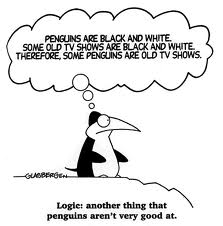There will be no problem concerning interval algebra composition in temporal logic on the final exam.
-James
Modal, Temporal, and Spatial Logics
There will be no problem concerning interval algebra composition in temporal logic on the final exam.
-James
Hi Everyone,
I’ll have answers for the model questions later today. I won’t have time to have a sample dynamic logic model, but it will be very similar to the ones in the slides from class (wink wink).
If anyone has questions, feel free to email me this weekend!
-James
Here is a list of the material being covered for the final. I’ll also be posting the sample satisfaction model questions later today.
Good luck studying!!
Cheers,
James
I’ve posted the slides I had from Tuesday, but was not able to show, due to computer failure. Tomorrow I will continue with Propositional Dynamic Logic (PDL), and give an initial semantics for the language. We’ll also backtrack to slides from Tuesday on the Situation Calculus that I didn’t show.
-James
Here is a great resource from one of the most influential logicians alive.
Johan van Benthem’s book, Modal Logic for Open Minds, is a wonderfully clear introduction to the new synthesis, bringing ideas from logic, philosophy, computer science, and linguistics.
I’ve posted a couple of good articles about propositional logic and the use of tableaux in proofs. The first is a great article by Mordechai Ben-Ari called
“Propositional Logic: Formulas, Models, Tableaux”
The second is a set of slides on tableaux from Paolo Liberatore’s course on automated reasoning:
http://www.dis.uniroma1.it/~liberato/ar/tableau/tableau.html
The text is available on Latte under “Files”. I’d like you to have read Chapter 1 by Tuesday September 3. I will cover proof theory for propositional logic and semantics for PL tomorrow. I will have the problem set ready for distribution tomorrow as well.
-James
I look forward to meeting you all this morning for our first class. I will survey the vast field of modal logic and how it is used in philosophy, linguistics, computer science, psychology, economics, and political science. The first two weeks will involve an intense treatment of proof theory for propositional and first-order logic, and their corresponding model theories, in order to get us ready for modal relation structure. We then proceed to an in-depth study of modal and dynamic logic, especially their applications to temporal and spatial systems, and how they are used in the modeling of linguistic data.
